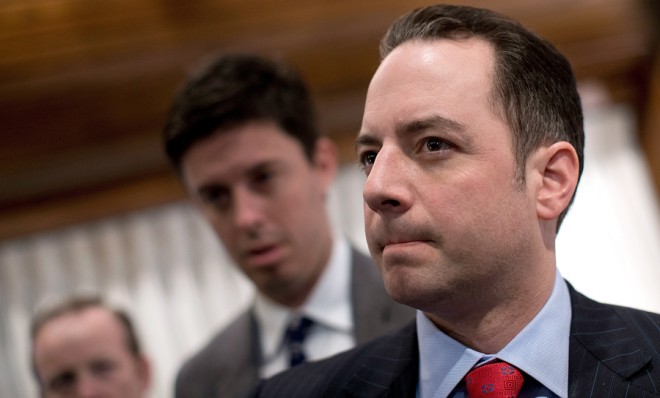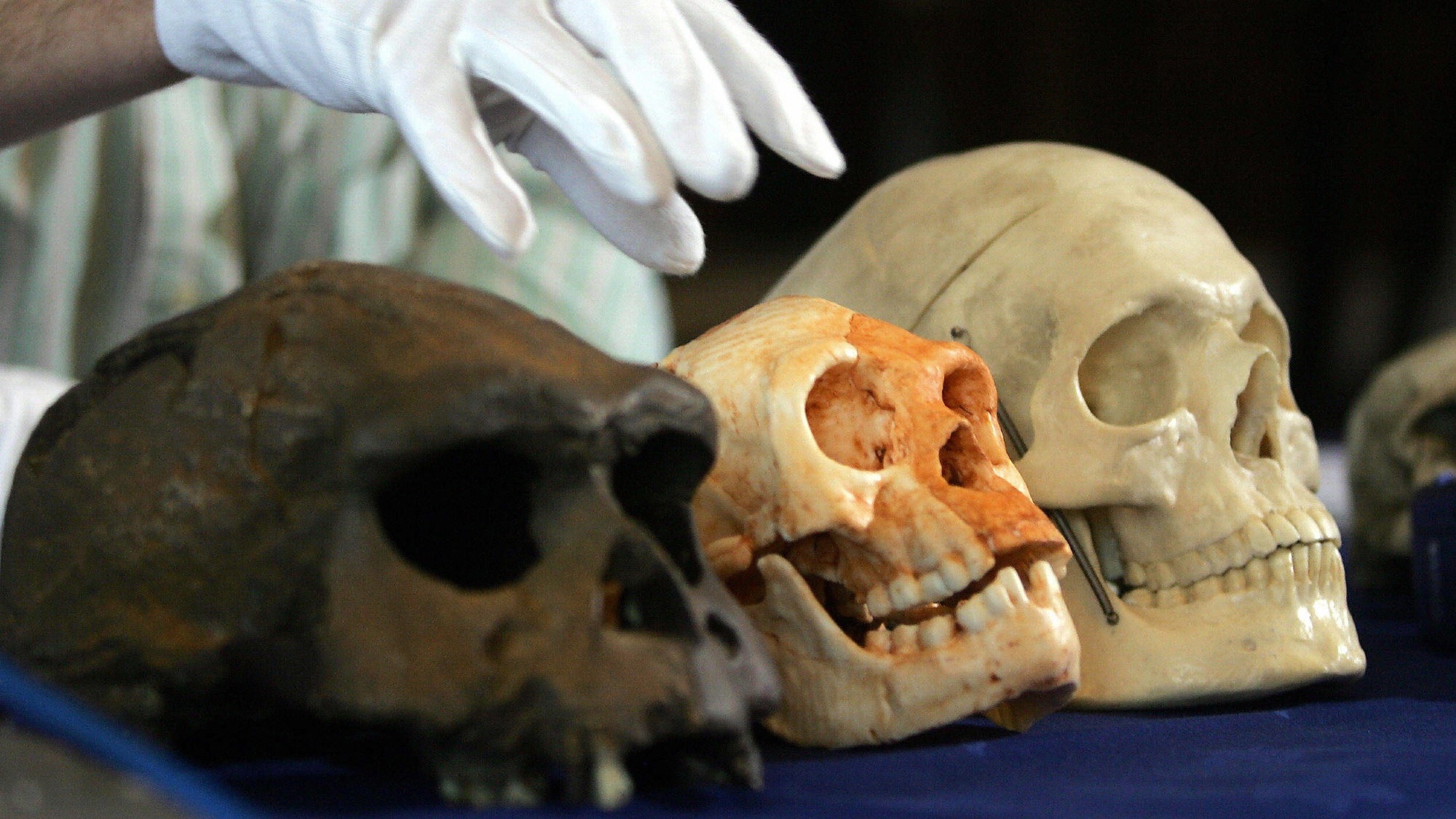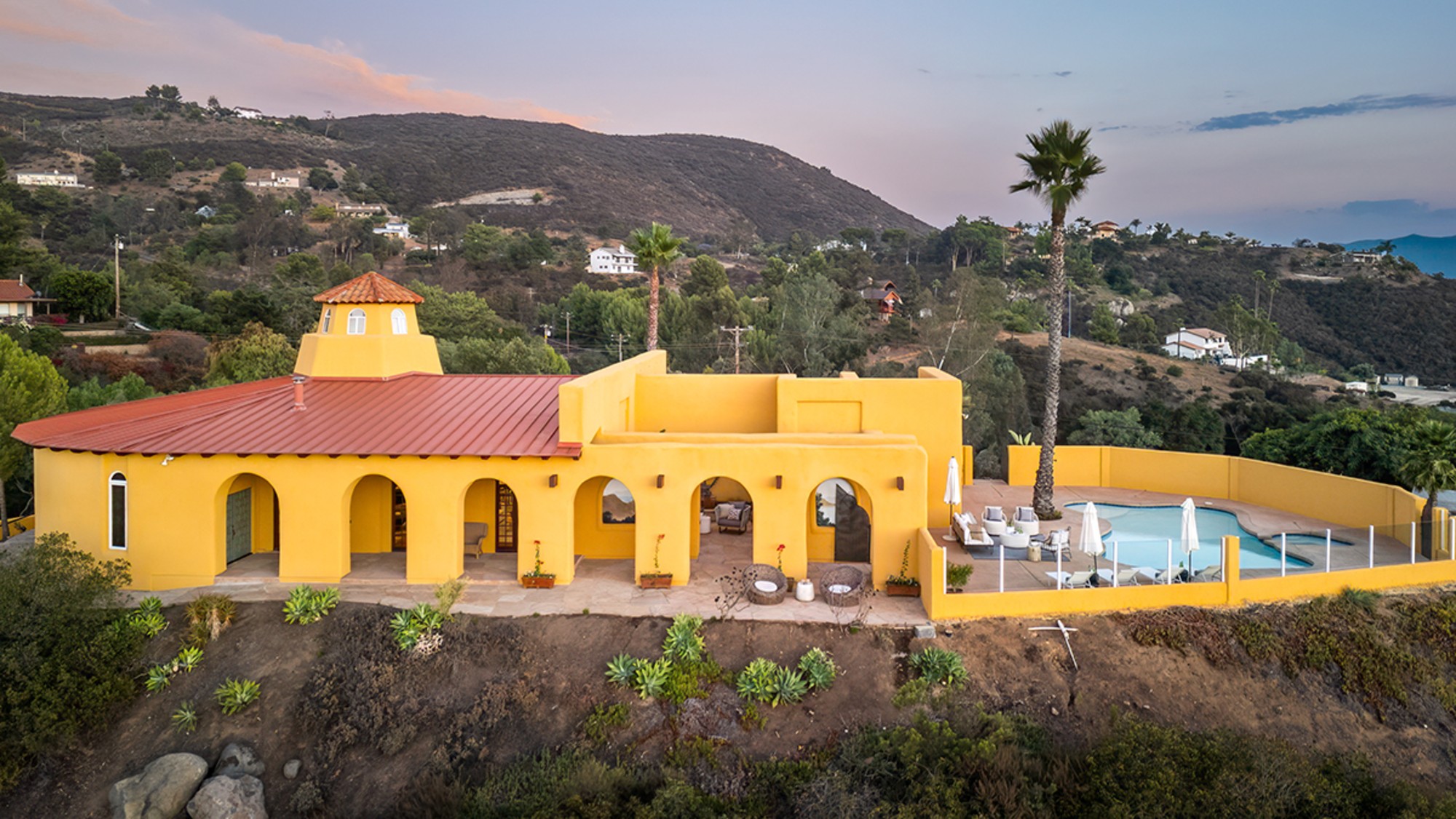Why Reince Priebus' debate ultimatum misses the mark
Yes, the RNC chair has a point that primary debates are flawed. But the problem isn't moderator bias — it's the structure of the debates themselves.


It's difficult to blame Reince Priebus for taking a stand on 2016 presidential primary debates with CNN and NBC. Of all the criticisms of the GOP in the last election, the debates stand out as a particular sore spot for the Republican National Committee. The RNC ended up stuck with more than 20 debates hosted by media outlets the party regards as unfriendly, thanks to a number of candidates who rushed to approve debate invitations as a way of expanding their reach beyond a narrow group of supporters. Conservative activists in particular have slammed the GOP for allowing its candidates to appear in debates with mainstream-media moderators, with specific grievances against particular reporters.
The catalyst for Priebus' latest complaint is the decision by CNN and NBC to air programs that feature Hillary Clinton, presumably in a favorable light. Presumption is all we have at the moment, as neither of the films in question have been screened for critics. NBC plans a biopic miniseries starring Diane Lane as the former secretary of State, while CNN will air an independently produced documentary on Clinton.
In response, Priebus has demanded that both networks cancel their programming if they want to participate in Republican primary debates. "It's appalling to know executives at major networks like NBC and CNN who have donated to Democrats and Hillary Clinton have taken it upon themselves to be Hillary Clinton's campaign operatives," Priebus said in a statement. In an open letter to NBC Entertainment chair Robert Greenblatt, Priebus pointed out that David Cohen, executive vice president of NBC's parent Comcast, was a bundler for President Barack Obama's campaigns, raising $1.4 million, and that Comcast employees contributed another $522,000. Airing a miniseries on Clinton would mean, according to Priebus, that "NBC cannot purport to be a neutral party in American elections." A similar letter to CNN skipped any discussion of political contributions, but instead noted that airing a documentary on Clinton ahead of the Democratic primary unfairly handicaps other potential challengers for the party's nomination, as well as a Republican nominee who might have to run against Clinton in the general election.
The Week
Escape your echo chamber. Get the facts behind the news, plus analysis from multiple perspectives.

Sign up for The Week's Free Newsletters
From our morning news briefing to a weekly Good News Newsletter, get the best of The Week delivered directly to your inbox.
From our morning news briefing to a weekly Good News Newsletter, get the best of The Week delivered directly to your inbox.
The letter gives both broadcasters until Aug. 14 to pull the programs from their schedules. Otherwise, Priebus warns that he will seek a binding vote from the RNC that will refuse to sanction any debate by NBC or CNN.
While Priebus needs to demonstrate some kind of action to respond to intraparty critics, he misses the mark with these demands. The problem is less the bias of the moderators than it is the structure of the debates themselves. Even under the best of moderators and environments, the format inevitably turns politics into game shows and candidates into clowns — especially in the primaries.
Now, it's not as if the bias of moderators hasn't come into play in the past. Republicans are still outraged at CNN's Candy Crowley for rebuking Mitt Romney on an answer related to the Benghazi terror attack — a rebuke that turned out to be incorrect in the end, as Crowley later grudgingly admitted. However, that debate was in the general election, which the RNC would hardly boycott, and that grudge stands whether CNN airs a Hillary-friendly documentary or not.
The other example of moderator bias that stands out most in conservative-activist memory is George Stephanopoulos' bizarre 15-minute focus on contraception in the final New Hampshire primary debate. The bemused reaction by Republican candidates was followed shortly thereafter by the Obama administration's announcement of the employer contraception/sterilization coverage mandate under the Affordable Care Act, and followed not long afterward by accusations from Team Obama about a Republican "war on women" for opposing the mandate. Stephanopoulos works for ABC, however, and not NBC or CNN — and furthermore used to work for Bill Clinton as a campaign adviser and later as a policy adviser during the first Clinton term. Why not demand that ABC pledge to keep Stephanopoulos on the sidelines in any future debate, especially given his connection to the Clintons?
A free daily email with the biggest news stories of the day – and the best features from TheWeek.com
But let's focus on the real problem in all of these cases: The format of the primary debates. Voters need to know how candidates think on complicated issues and policies. Instead of giving them time to flesh out answers and discuss any nuances of approach, the format locks candidates into absurdly short responses and rebuttals. Too often, the result is a rushed recitation of campaign talking points, with little or no original thought.
Worse yet, the media coverage of these debates end up focusing less on the substance of the answers than the rehearsed one-liners candidates use to needle each other. Analysts have little to judge from these debates other than superficialities such as posture, facial expressions, and the relative skill of the candidates' tailors, which is why they latch onto the zingers as if the entire process is designed to produce the best master of ceremonies for the White House Correspondents Dinner. Parties with open primaries end up with a stage full of damaged candidates before the first ballots in primaries and caucuses get cast.
Furthermore, it's not just Priebus who should be concerned about the ridiculous spectacle of these debates. The potential risk in the 2016 cycle extends to both parties, unlike 2012 when Democrats had an unchallenged incumbent. Hillary Clinton blew her cool in a December 2007 primary debate when challenged on states' issuance of drivers licenses to illegal immigrants, changing her position in the course of her answer, on a subject that had little relation to the presidency. While the Republican primary will be up for grabs, Clinton starts off as the presumed frontrunner in the 2016 cycle, just as she did in 2008, which makes her the big target for everyone else. Clinton could end up as damaged as Mitt Romney after the 2012 primary debates.
If Priebus wants to take serious steps toward reform, he should rethink the entire debate structure. Instead of beat-the-buzzer formats with as many as a dozen candidates on stage at once, the RNC chair should look into formats that have only two or three candidates discussing issues at a time, with a moderator chosen for either neutrality or statesmanship within the party rather than to promote a media outlet's own reporters. The candidates could rotate through the discussions over a series of events, and the RNC could invite broadcasters to air the debates themselves or have reporters attend them. Given the reach of broadband access, the RNC could live-stream those debates themselves and bypass media outlets altogether. That would put candidates in the best possible position to connect with voters and challenge each other on substance based on their own agendas rather than those of the media outlets.
CNN responded to Priebus' ultimatum by rejecting the demand, claiming that a refusal to partner with CNN on debates would "be the ultimate disservice to voters." The ultimate disservice to both voters and candidates is the artificial, game-show circus that got repeated ad infinitum in 2011 and 2012. Priebus would do us all a favor by looking for an alternative that produces serious political debate rather than the Zinger of the Week.
Edward Morrissey has been writing about politics since 2003 in his blog, Captain's Quarters, and now writes for HotAir.com. His columns have appeared in the Washington Post, the New York Post, The New York Sun, the Washington Times, and other newspapers. Morrissey has a daily Internet talk show on politics and culture at Hot Air. Since 2004, Morrissey has had a weekend talk radio show in the Minneapolis/St. Paul area and often fills in as a guest on Salem Radio Network's nationally-syndicated shows. He lives in the Twin Cities area of Minnesota with his wife, son and daughter-in-law, and his two granddaughters. Morrissey's new book, GOING RED, will be published by Crown Forum on April 5, 2016.
-
 Homo Floresiensis: Earth’s real life ‘hobbits’
Homo Floresiensis: Earth’s real life ‘hobbits’Under the Radar New research suggests that ‘early human pioneers’ in Australia interbred with archaic species of hobbits at least 60,000 years ago
-
 Homes by renowned architects
Homes by renowned architectsFeature Featuring a Leonard Willeke Tudor Revival in Detroit and modern John Storyk design in Woodstock
-
 Looming drone ban has farmers and farm-state Republicans anxious
Looming drone ban has farmers and farm-state Republicans anxiousIN THE SPOTLIGHT As congressional China-hawks work to limit commercial drone sales from Beijing, a growing number of conservative lawmakers are sounding an agricultural alarm
-
 Has Zohran Mamdani shown the Democrats how to win again?
Has Zohran Mamdani shown the Democrats how to win again?Today’s Big Question New York City mayoral election touted as victory for left-wing populists but moderate centrist wins elsewhere present more complex path for Democratic Party
-
 Millions turn out for anti-Trump ‘No Kings’ rallies
Millions turn out for anti-Trump ‘No Kings’ ralliesSpeed Read An estimated 7 million people participated, 2 million more than at the first ‘No Kings’ protest in June
-
 Ghislaine Maxwell: angling for a Trump pardon
Ghislaine Maxwell: angling for a Trump pardonTalking Point Convicted sex trafficker's testimony could shed new light on president's links to Jeffrey Epstein
-
 The last words and final moments of 40 presidents
The last words and final moments of 40 presidentsThe Explainer Some are eloquent quotes worthy of the holders of the highest office in the nation, and others... aren't
-
 The JFK files: the truth at last?
The JFK files: the truth at last?In The Spotlight More than 64,000 previously classified documents relating the 1963 assassination of John F. Kennedy have been released by the Trump administration
-
 'Seriously, not literally': how should the world take Donald Trump?
'Seriously, not literally': how should the world take Donald Trump?Today's big question White House rhetoric and reality look likely to become increasingly blurred
-
 Will Trump's 'madman' strategy pay off?
Will Trump's 'madman' strategy pay off?Today's Big Question Incoming US president likes to seem unpredictable but, this time round, world leaders could be wise to his playbook
-
 Democrats vs. Republicans: who are US billionaires backing?
Democrats vs. Republicans: who are US billionaires backing?The Explainer Younger tech titans join 'boys' club throwing money and support' behind President Trump, while older plutocrats quietly rebuke new administration
